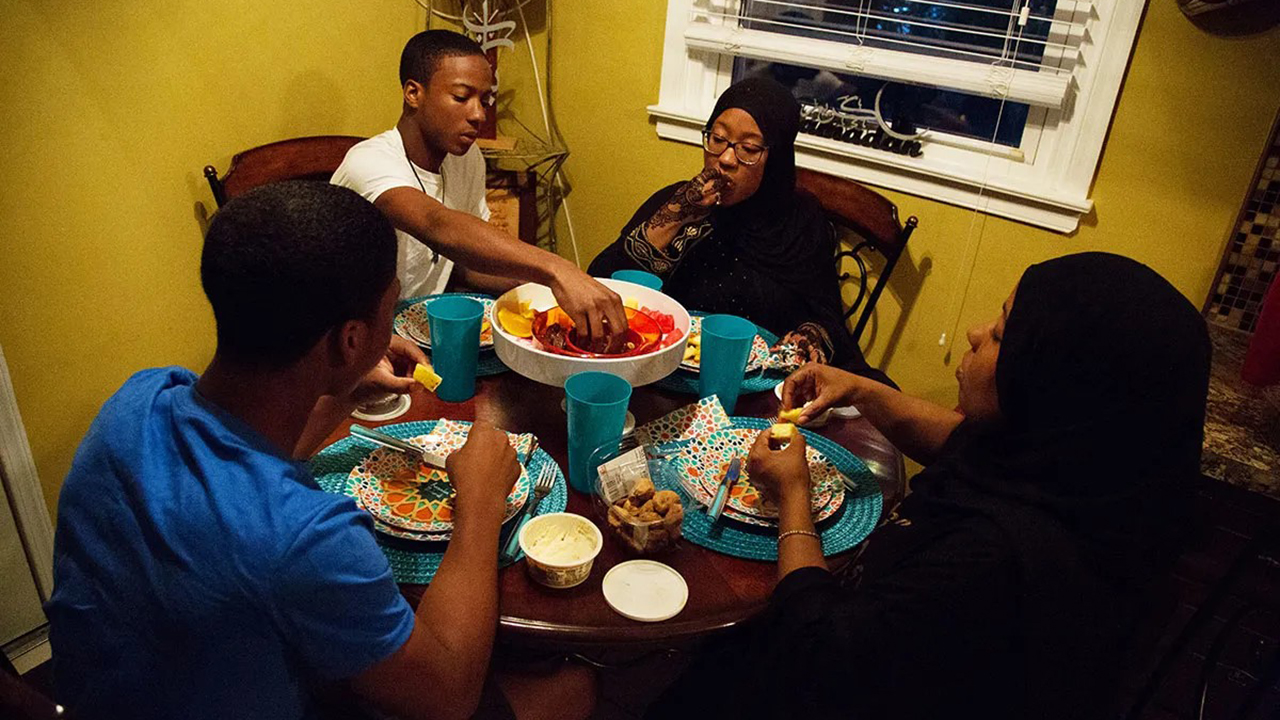
Brethren, the concluding part of the subject matter of our sermon last week will form the thrust of today’s discussion as we wrap up the other elements in the cultivation of good character among the Muslims, especially the younger ones.
So, etiquettes with one’s self implies that a Muslim should always engage in things that will purify and elevate one’s soul, so that one does not become a captive of whims and caprices, and thereby stray away and become misguided.
This self-consciousness relates to the duality of nature and ability in the creation of man. What duality infers is that the two ingredients in his make-up i.e., earth’s clay and Allah’s spirit, form within him two equal tendencies to good and evil, to follow Divine guidance and to go astray. Man is just as capable of recognizing the good as he is of recognizing the evil in everything he encounters, and he is equally capable of directing himself one way or the other.
This dual ability is deeply ingrained with him. All external factors like Divine messages only serve to awaken his potential and help it take its chosen way. In other words, these factors do not create this potential, which is innate; they only help it develop.
In addition to his innate ability, man is equipped with a conscious faculty which determines his line of action and is, therefore, responsible for his actions and decisions. He who uses this faculty to strengthen his inclinations to what is good and to purify himself and to weaken the evil drive within him will be prosperous and successful; while he who uses his faculty to suppress the good tendency in him will ruin himself.
Nevertheless, a Muslim will commit mistakes for he is not infallible; but he struggles against himself in order not to commit mistakes. And when he is overtaken by his desires and falls into sin, he should not despair of the mercy of Allah, rather, he should return to Allah and rush to repent to Him; he should blame himself for the disobedience he committed, and punish himself by depriving his soul of some of its lust so that it will not command him to disobey Allah again.
The etiquettes of relating with other people involve dealing with fellow human beings correctly. However, it should be noted that each type of person has a peculiar set of etiquettes according to their position and the nature of their relationship with others.
Therefore, a Muslim obeys his parents in all matters except when it entails disobedience to Allah; he also honours them, glorifies their position, deals with them in humility and expresses kindness in words and actions towards them. He should not scream at them, nor say words of disrespect or call them by their names. He should be as good and kind as he possibly can and spend on them whenever they need anything from him.
Also, a Muslim knows that his children have rights upon him, such as carefully choosing the wife who will be their mother; ensuring a proper upbringing for them and cultivating and providing for them. He should be merciful and kind towards them until they grow up and become independent.
It is fundamental for a Muslim to accept that their spouse has rights over him. “And they have rights (over husbands) similar (to husbands) over them to what is reasonable” Q2V228. Among the etiquettes of the husband with his wife are:
To have patience, tolerance, and compassion, because the Prophet (SAW) said: “Treat women kindly, because they were created from a crooked bone and the most crooked part of the bone is its top part; if you try to straighten it you will break it, and if you leave it, then, it will continue to be crooked; so treat women kindly,” (Bukhari & Muslim).
To provide for her sufficiently. This is an obligation. To be gentle in the treatment of her because the Prophet (SAW) said: “The best among you are the best in treatment to their wives,” (Ahmad &Tirmidhi).
To love her, for the Prophet (SAW) said: “A believer should not hate his wife; if he dislikes one of her characteristics, there are other virtues in her which he would like,” (Muslim). To be just with her. To give her the due sexual right in order to keep her chaste. To preserve her secrets. Not to focus on her faults and shortcomings. To teach her Islam and command her to do good and forbid her from evil.
To play and joke with her. ‘Aa’ishah (may Allah be pleased with her) narrated: “I once went out on a trip with the Prophet (SAW) while I was still young and had not yet put on weight; so he commanded people to proceed ahead of us, then he said to me, ‘let us race’ and so we did, and I won. After some time when I became heavier and had put on weight and had forgotten about the first race, he took me on another trip with him; so he commanded the people to proceed ahead of us, and said to me, ‘let us race’, so we did and he won. Then, he started laughing and said, ‘This one for the first one’ (Ahmad & Abu Dawoud). This is the Prophet of Islam and this is how he treated his wives.
Very significant too, a Muslim should be kind to his kinsfolk, maintain good ties with them and be righteous with them, even if they were to desert him; he should be kind to them even if they were to be cruel to him. He should respect his elders, show mercy to the youngsters, visit the sick and comfort the afflicted.
Neighbours in Islam have rights similar to kinsfolk; among these rights are that one should be kind to them in words and actions, refrain from harming them in any way, be generous with them, and have a smiling face when he meets them. One should check on them, give them gifts, respect and honour them and refrain from mocking them. The Prophet said: “Angel Jibreel continued to instruct me about kindness to neighbours until I thought that they would be heirs of the will.” (Bukhari & Muslim).
Moreover, there are rights of a Muslim upon another Muslim, such as: greeting him with Salaam (peace be upon you) when they meet, and replying when he is greeted with the greeting of Islam which is ‘Assalaam ‘alaykumwarahmatullahiwabarakaatuh’. It is incumbent on a Muslim when his fellow Muslim sneezes and says, ‘Al-hamdulillah (All praise is due to Allah) to say to him (the one that sneezed), ‘Yarhamkallah’ (May Allah be merciful with you), then the one who sneezed should reply: ‘yahdeekumullahuwayuslihubaalakum’ (may Allah guide you and rectify your condition).
Engagement with fellow Muslim is guided by love, humility, support, advice, visit and rejoicing with one another in a moment of happiness. One should visit a fellow Muslim when he is sick and accompany his funeral procession. Muslims are enjoined to refrain from backbiting and mocking fellow Muslims as well not lying to them, cheating them, cursing them, envying them, hating them, having ill-conceived thoughts about them, spying on them, deceiving them or deserting or picking quarrels with them for more than three nights.
Muslims are to forgive one another; overlook the mistakes of fellow Muslims and hide them; they should defend each other in their absence and be just with them. One should treat his fellow Muslim just as he would like people to treat him; one should respect him if he is older and be merciful with him if he is younger and help him out whenever he needs it.
As regards non-Muslims, they have rights upon Muslims as well. Aside from the difference in religion, all the rights enjoyed by Muslims among themselves are also applicable to non-Muslims.
Therefore, a Muslim generally treats non-Muslims mercifully, such as feeding him when he is hungry; giving him water when he is thirsty; treating him when he is sick; rescuing him when he encounters danger. Indeed, etiquettes with the non-Muslims are captured in the saying of the Prophet (SAW) that: “The most Merciful (Allah) will have mercy on those who are merciful; be merciful with those on earth (i.e., the people) and Allah will be merciful to you.” (Ahmad).
“Our Lord, give us goodness in this world, and goodness in the Hereafter, and protect us from the suffering of the fire.”
Jumu’at Mubarak






